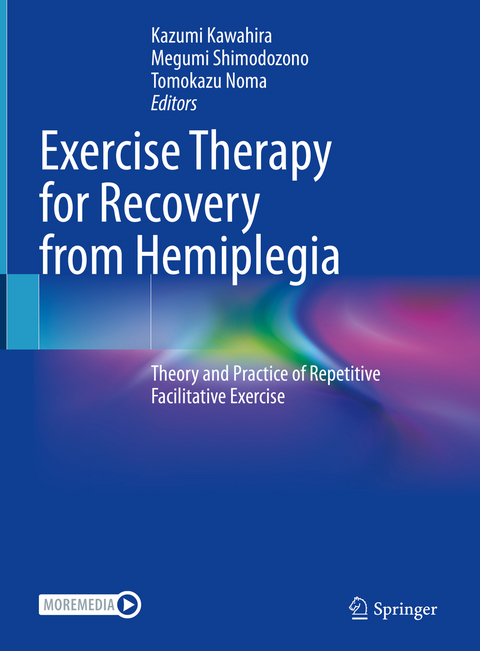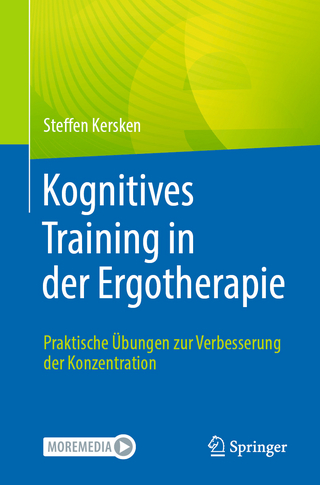
Exercise Therapy for Recovery from Hemiplegia
Springer Verlag, Singapore
978-981-19-0788-3 (ISBN)
This book introduces an innovative, efficient, and patient-friendly neural net constructive therapy for patients with mild to severe hemiplegia, not only in the recovery phase but also in acute and chronic phases. The explanations are supported by extensive photographs of each position and a set of 72 video clips to help readers follow and reproduce the techniques. This book explains the theory of Repetitive Facilitative Exercise (RFE), which is a combination of repetitive volitional flexion and extension movements from neurofacilitation approaches. This exercise is aimed at achieving the intended movements and lessening synergistic movement patterns by reconstructing and strengthening the neuropathways of the injured nerve tract. Instead of interpreting disorders based on reflex theory and constructing treatment methods, the new approach considers scientific treatment methods that emphasize the formation of neural pathways by improving synapse formation and transmission efficiencybased on functional localization, central programs, and neural nets. Chapters provide a basic theory of RFE, offering the underlying mechanisms of nerve tract formation/strengthening, such as functional localization, voluntary movement, plasticity, and neural lateral sprouting, giving readers a comprehensive understanding of the prompt and repetitive therapy. This is followed by an exposition of practice and techniques, planning of treatment programs, and facilitation techniques for voluntary movements of the upper limb, individual fingers, and lower limb. Finally, the book introduces RFE to facilitate and enhance motor skills in walking and other functions.
Exercise Therapy for Recovery from Hemiplegia - Theory and Practice of Repetitive Facilitative Exercise will provide rehabilitation therapists, physiotherapists, occupational therapists, and medical doctors a refreshing alternative theory and practice to current approaches. Neuroscience researchers, stroke patients, and their families would find this book informative.
Kazumi KawahiraLaboratory of Repetitive facilitative exercise Megumi ShimodozonoThe Department of Rehabilitation and Physical MedicineKagoshima University Graduate School of Medical and Dental Sciences Tomokazu NomaDepartment of Rehabilitation, Faculty of Health, Sciences Nihon Fukushi University
Part I: Basics.- Chapter 1. Theory of Repetitive Facilitative Exercise.- Part II: Practice.- Chapter 2. Principles and Basic Techniques for Repetitive Facilitative Exercise.- Chapter 3. Planning Treatment Program.- Chapter 4. Repetitive Facilitative Exercise for the Upper Limb.- Chapter 5. Repetitive Facilitative Exercise for the Lower Limb.- Chapter 6. Walking Training to Stimulate the Function of the Affected Lower Limb.- Chapter 7. Basic Natural Movements (Rolling Over, Sitting Up, Standing Up, and Sitting Down from a Standing Position).
| Erscheinungsdatum | 07.12.2022 |
|---|---|
| Zusatzinfo | 139 Illustrations, color; IX, 178 p. 139 illus. in color. |
| Verlagsort | Singapore |
| Sprache | englisch |
| Maße | 210 x 279 mm |
| Themenwelt | Medizin / Pharmazie ► Gesundheitsfachberufe |
| Medizin / Pharmazie ► Physiotherapie / Ergotherapie ► Ergotherapie | |
| Naturwissenschaften ► Biologie ► Humanbiologie | |
| Naturwissenschaften ► Biologie ► Zoologie | |
| ISBN-10 | 981-19-0788-9 / 9811907889 |
| ISBN-13 | 978-981-19-0788-3 / 9789811907883 |
| Zustand | Neuware |
| Informationen gemäß Produktsicherheitsverordnung (GPSR) | |
| Haben Sie eine Frage zum Produkt? |
aus dem Bereich


